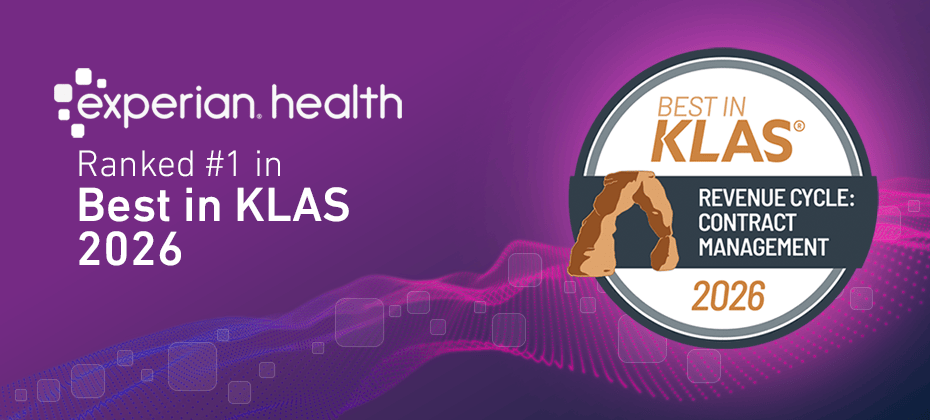
In healthcare revenue cycle management (RCM), the mantra is clear: maximize revenue and minimize costs. It’s more complex in practice, requiring RCM leaders to anticipate and adapt to whatever’s around the corner. Following the latest revenue cycle management trends is vital, as economic turbulence and labor shortages demand flexibility and resilience. Competition from new players and changing consumer expectations call for constant updates to the latest technology. And currently, as electoral news cycles heat up ahead of the general election, attention is turning to potential policy changes and their implications for revenue cycle management.
Keeping an eye on how the industry evolves will help RCM managers hold the course for financial stability and growth. Here are 12 revenue cycle management trends to watch:
1. Investment in managed RCM services
Investment in managed RCM services has become an increasingly attractive option for RCM managers grappling with persistent workforce challenges and navigating the intricate landscape of payer policies. Outsourcing has become a strategic solution to address staffing shortages and limited resources. By partnering with vendors like Experian Health, healthcare organizations can get access to specialist expertise, datasets and automated technologies they’d be hard-pressed to develop in-house.
For example, Collections Optimization Manager allows users to retain control and oversight of their collections processes but comes with real-time support from a dedicated Collections Optimization Consultant for a bespoke collections strategy built on data insights and industry knowledge.
2. Staff shortages and reimbursement model changes
Staffing shortages are particularly problematic when they bump up against changing reimbursement models. Unfortunately, staffing shortages are still common in the future of revenue cycle management. In Experian Health’s latest staffing survey, 69% of respondents believe that staffing will continue to be a problem in the future.
More providers are moving to value-based care models, which have implications for claims submission processes and provider-payer relationships. High staff turnover leaves providers without the knowledge and expertise to handle more complex claims and billing processes. A tool like Contract Manager and Contract Analysis, recently awarded Best in KLAS for Contract Management, helps monitor and manage payer contracts to stay on top of terms and conditions, mitigate risk and maintain financial stability.
3. Workflow inefficiencies
Another way to ease staffing pressures is to improve workflow efficiency. A recent Bain report found that 40% of clinicians reported a lack of effective workflows, while up to 70% had never tried automated workflow management. There’s a missed opportunity here, as manual processes and communication bottlenecks seriously disrupt revenue cycle functions. Organizations that leverage more efficient ways of working will secure a competitive advantage as new demands and pressures arise. Reviewing key performance indicators is a good starting point for determining where to focus improvement efforts.
4. Technological advancements in RCM
The ongoing evolution of artificial intelligence (AI) has profoundly impacted various sectors, and the realm of revenue cycle management is no exception. AI-based tools will continue to shape the future of revenue cycle management, and providers will have to implement these tools in order to keep up with the competition. Machine learning algorithms increase RCM efficiency and accuracy by automating routine tasks, while advanced tools like AI AdvantageTManalyze vast datasets to identify patterns and predict outcomes. AI Advantage transforms claims management by predicting claims that are most likely to be denied, and then triaging denials so staff can focus on those with the highest likelihood of reimbursement.
Eric Eckhart, Director of Patient Financial Services at Community Medical Centers, says, “We were looking for something technology-based to help us reduce denials and stay ahead of staff expenses. We’re very happy with the results we’re seeing with AI Advantage.”
5. Technology integration
The amount of data being collected, generated, processed and shared within healthcare organizations is skyrocketing. More data means greater capacity for personalized services, fewer gaps in care, and more streamlined RCM processes—but only if data systems talk to one another. Opting for a single integrated solution avoids the pitfalls of shoe-horning new tools into legacy systems.
For example, Experian Health’s acquisition of Wave HDC means organizations can now access a single tool to check multiple data sources at registration. Patient Access Curator uses AI to perform eligibility verification, coordination of benefits, coverage discovery and more, to help healthcare organizations accelerate registration and reduce claim denials.
6. Medical billing errors
Whether a coding mistake or an accidental typo, billing errors cost providers dearly in lost revenue and time. Unfortunately, they’re a growing risk as more patients show up with coverage from multiple payers and high deductibles. On the upside, organizations should see improvements with relatively little effort—assuming they deploy the right tools and strategies. Patient Access Curator, mentioned above, uses AI and robotic process automation to collect and verify the information needed to compile error-free claims with just a single click.
Watch the webinar to find out more about how Patient Access Curator helps providers eliminate errors and reduce claim denials from the front end.
7. Patient-centric approaches
A McKinsey report published in April 2024 highlighted a continuing trend in healthcare consumers’ keenness to use digital products and services when accessing care. Experian Health’s series of patient access surveys show a consistent desire for personalization, convenience, choice and compassion in patient access. These principles underpin Experian Health’s approach to helping providers open their digital front door.
Online self-scheduling, digital registration, and tailored patient outreach all improve patient satisfaction and engagement, subsequently bolstering revenue generation.
8. Financial clearance and diverse payment options
One specific opportunity relating to the above point lies in offering a patient-centered financial experience. Financial clearance tools and flexible payment plans have gained prominence by making it easier for patients to understand and manage their financial obligations. Tools like Patient Financial Clearance automate presumptive charity screening to see if patients qualify for financial assistance programs, provide scripts to help staff deliver compassionate financial counseling, and calculate affordable monthly payments based on individual circumstances.
Case study: DiscoverHow UCHealth wrote off $26 million in charity carewith Patient Financial Clearance.
9. Financial engagement and omnichannel platforms
Patient collections are a growing challenge for providers. Patients similarly complain of unnecessary friction in the payment process: The State of Patient Access 2024 survey found that 72% of patients want more digital payment options digital methods. By providing a unified experience across online portals, mobile apps and point-of-service payments, providers can increase patient engagement with financial processes and accelerate collections.
10. Challenges specific to each revenue cycle segment
Organizations are shifting away from uniform solutions for the entire revenue cycle and instead embracing tailored strategies that accommodate the unique requirements of various departments, services, and workflows. By harnessing advanced analytics and automation, providers gain insight into the nuanced challenges within revenue cycle management, enabling them to adopt the best tools. This approach ranges from customizing intake and billing processes on a departmental basis to automating claims processing tailored to different payers’ specifications.
11. Customizable RCM solutions
Just as patients want tailored solutions, so too do providers. Data analytics and AI advancements enable providers to develop claims management solutions that fit their unique mix of payers and patients. On a recent webinar, representatives of Eskenazi Health discussed their use of Patient Financial Advisor, and how Experian Health consultants helped their organization customize their setup and workflow.
12. The role of strategic partnerships
Partnering with a vendor like Experian Health can be a transformative step for healthcare organizations seeking to optimize their operations and enhance patient care. With Experian Health’s expertise in healthcare technology and data management, organizations gain access to a comprehensive suite of automated solutions tailored to their specific needs. This also ties in with the first item in this list: implementing new ways of working isn’t always easy, but with a trusted vendor, providers can manage and accommodate revenue cycle management trends more confidently, efficiently, and cost-effectively.
By partnering with Experian Health:
- Providence Health found $30million in coverage and reduced denial rates
- IU Health processed $632 million in claims transmissions
The pace of change may be relentless, but with the right tools and support, RCM managers can stay one strategic step ahead and future-proof their revenue cycle for whatever surprises lie in store.
Learn more about how Experian Health’s revenue cycle management solutions can help providers keep up with revenue cycle management trends while maximizing revenue and minimizing costs.


